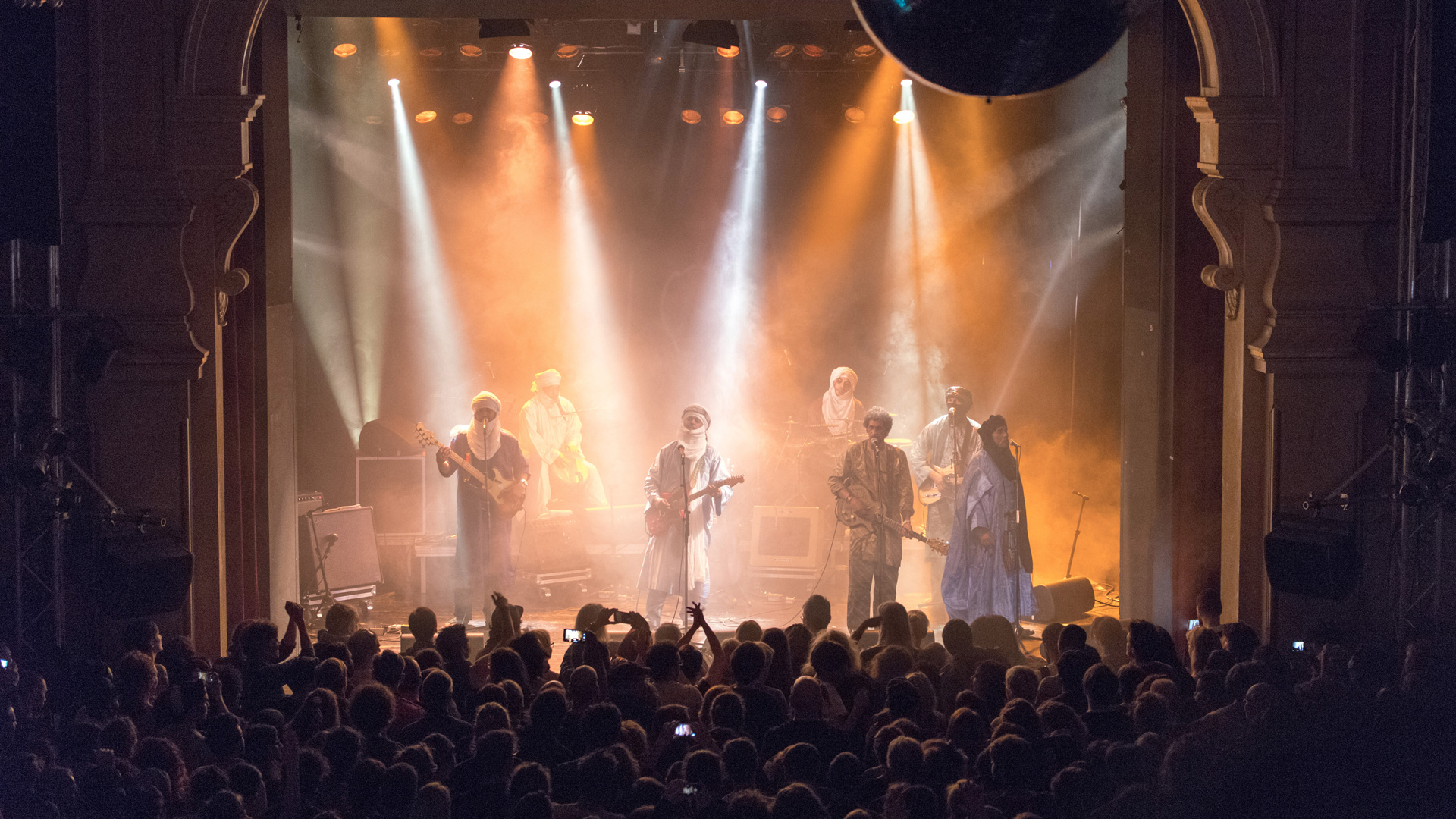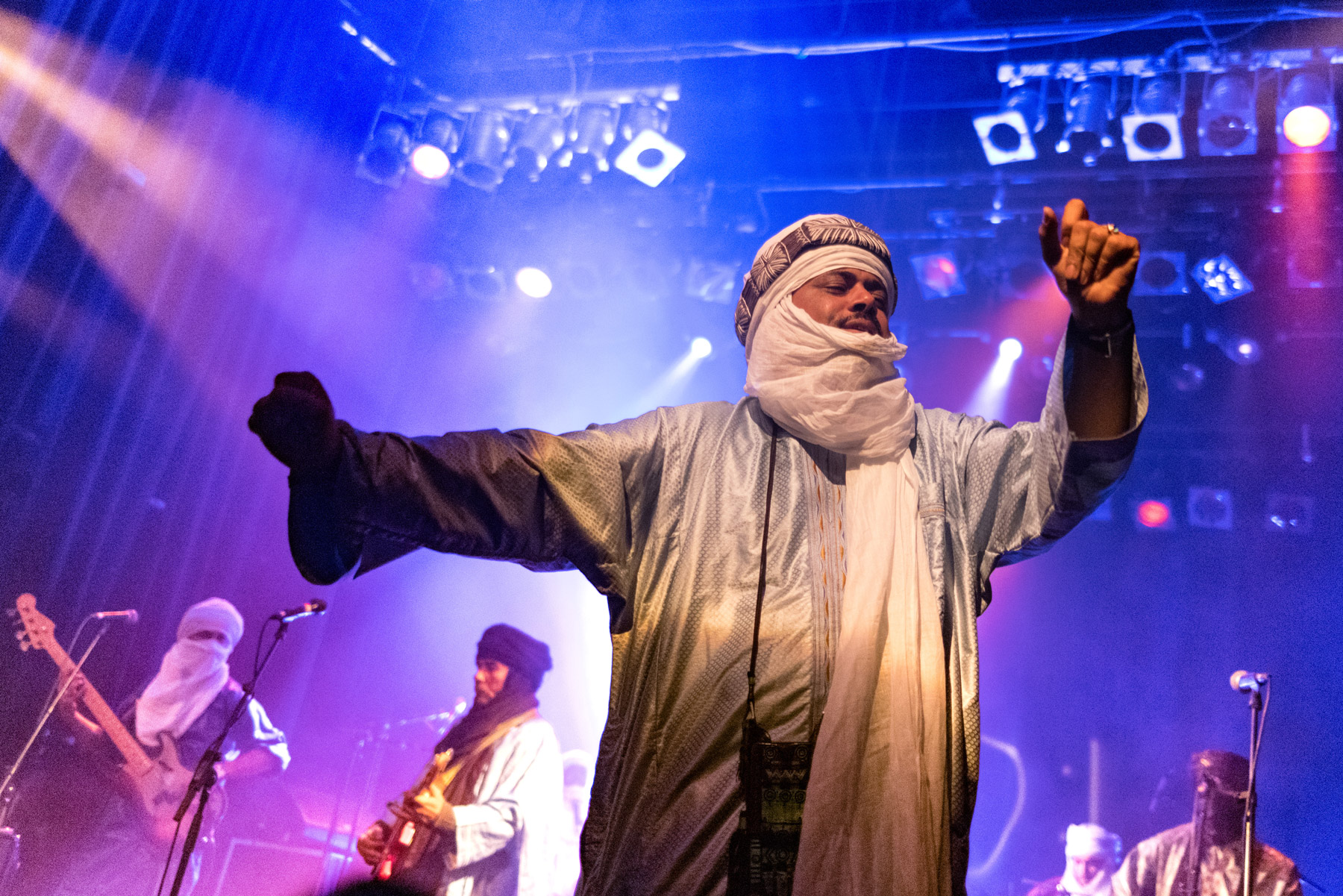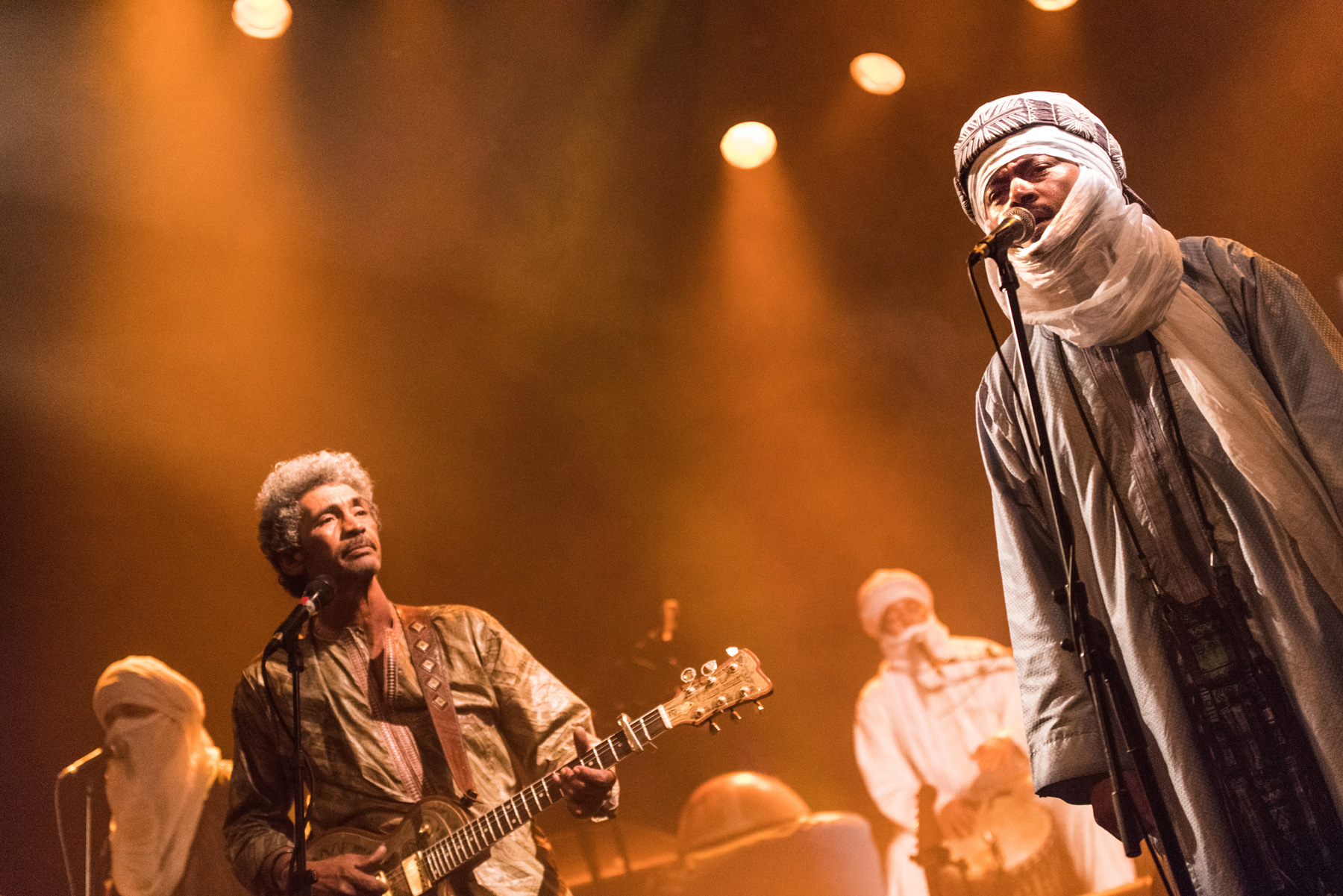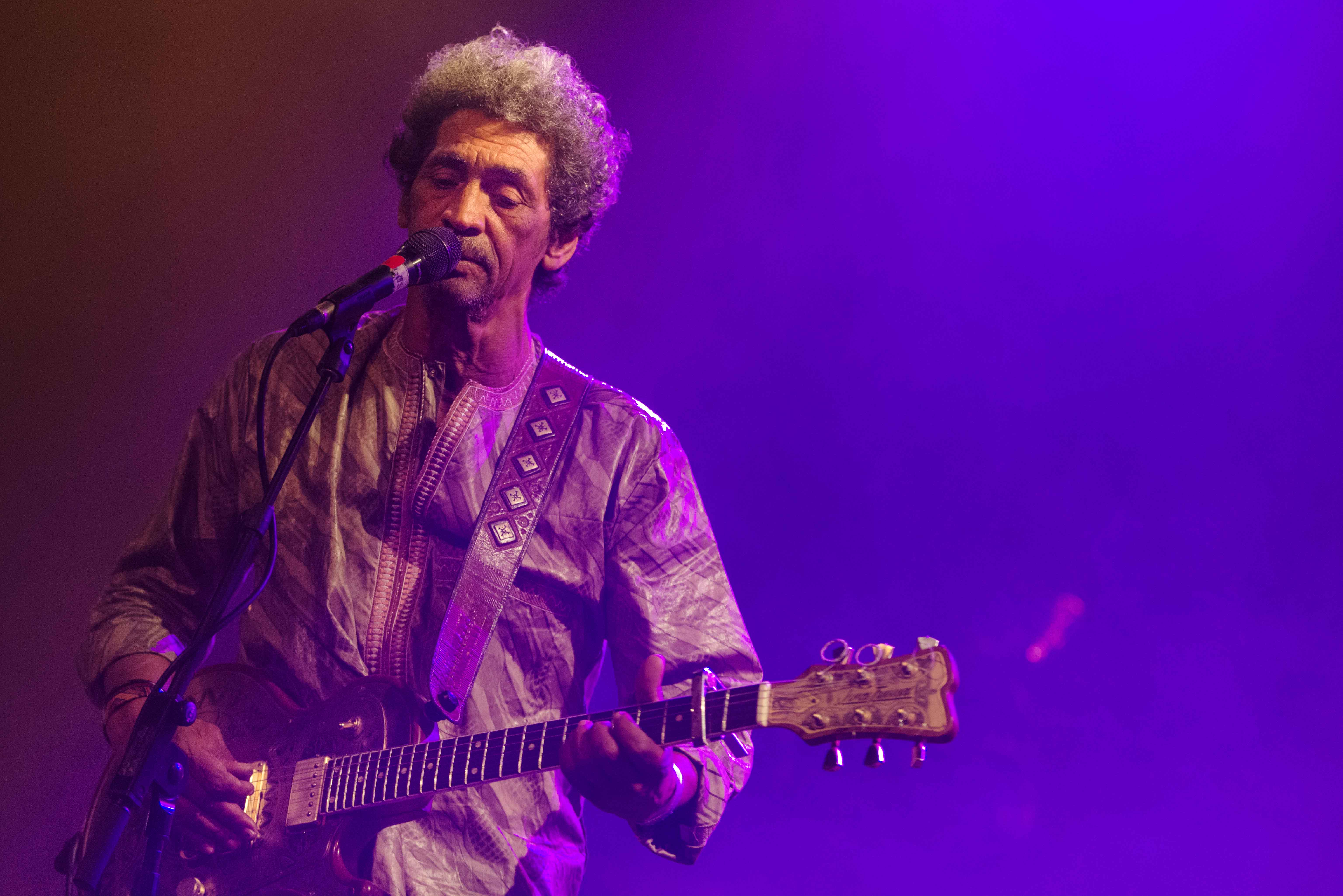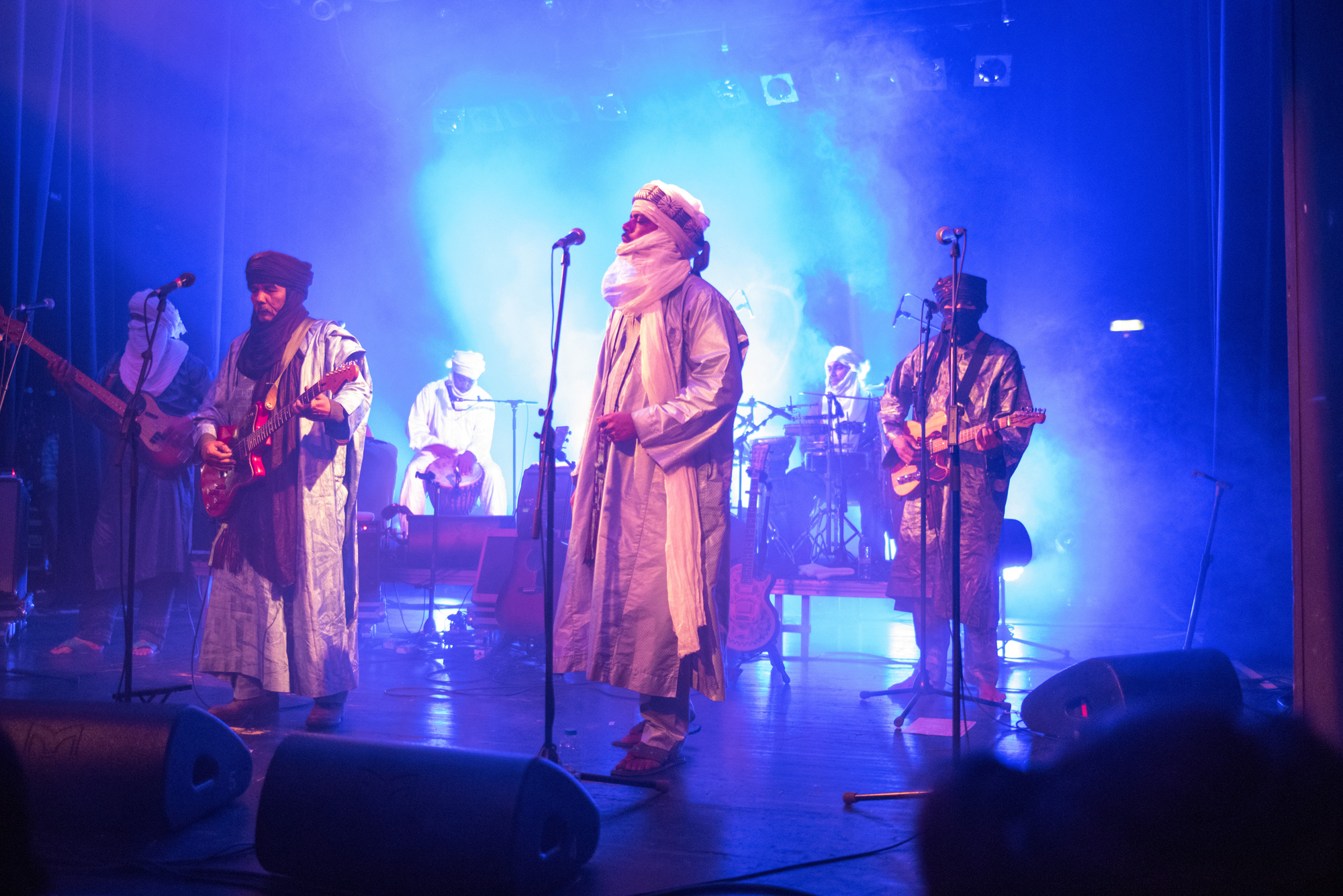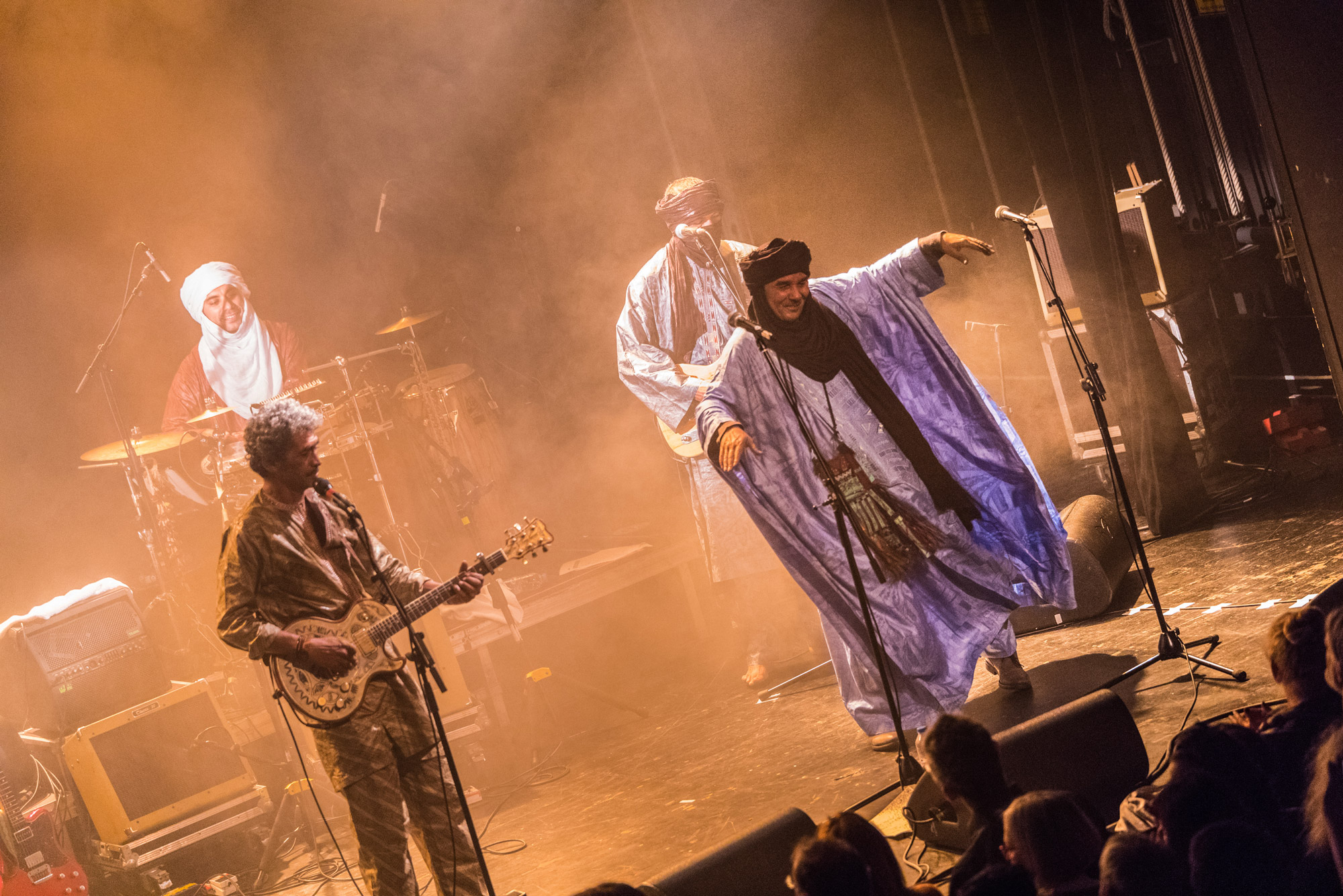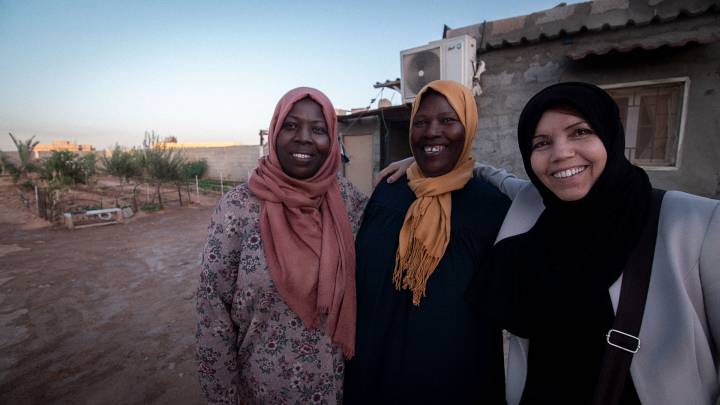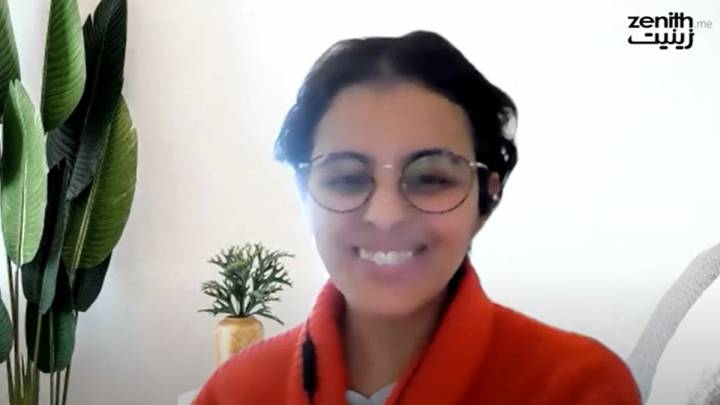They’re face of modern Tuareg music. As seasoned performers, Tinariwen know exactly how to please an audience with their live show.
Tinariwen are inarguably the most popular band to come out of Tuareg culture, and recently toured Europe to promote their seventh album, Elwan. Before the Berlin show, zenith caught up backstage with Abdallah Ag Alhousseyni, one of the group’s singers and front men.
The life of a touring musician is anything but glamorous, with a succession of cities, sound checks and travel. But some of Tinariwen’s members clearly thrive on the buzz of performing, and judging by the reception they receive later that evening from the Berlin crowd at Heimathafen in Neukölln after their sweaty set, they’re on the receiving end of plenty of audience adulation.
The band were formed in 1979 by Ibrahim Ag Alhabib, who was then living in Algeria with other Tuareg rebels who had been expelled from Mali. In the 1980s its members received military training from Libyan leader Muammar Gaddafi. They were then to participate in Tuareg rebellions against the governments in Mali and Niger in the early 1990s.
During a time of rebellion, their music was also transformational – substituting electric guitars for traditional instruments, and crafting a sound that would remake Tuareg music at home and win them recognition and acclaim abroad, including winning a Grammy in 2012. In Tamaschek, the Tuareg language, Tinariwen means ‘deserts’ or ‘empty space’. Alhousseyni explains: “We chose this name because it is beautiful and it concerns all Tuareg, wherever they live.”
Tinariwen’s connection to the desert is deep, extending to their recording process: they record all their albums in the desert, mixing the traditional music of the Tuareg with the rich rhythms of guitars and rock. For their newest album, Elwan (Elephants), they were unable to record in Mali due to the political tensions, and had to look overseas.
“Every album has to be recorded in the desert,” says Alhousseyni. “So we needed to find a desert that was suitable for us. For the new album, with the help of a good friend of mine we recorded three songs in California, and then decided to finish the recording of the album in Morocco.”
Challenging or facing those political tensions is an inherent part of the band’s music. “Elwan is an album like the ones we did before. It talks about the situation today. The situation of the Tuareg, it’s true that all Mali has problems, but the problems concern more particularly the Tuareg interior in Mali,” explains Alhousseyni.
The new album also features Western rockers, including Kurt Vile and Mark Lanegan, but Alhousseyni downplays any suggestion that touring is a process of discovering new music. “When you are on tour you actually don’t have any time for influence. You’re always busy and don’t really come into contact with people.”
Though Tinariwen are the most famous Tuareg musicians in the world, they’re certainly not looking for a role as ambassadors. When asked about the dream of an independent state for the Tuareg people, Alhousseyni proffers a diplomatic response: “Everything in life is possible. Life is not impossible. The point is about in which time it’s possible. For sure, we always have hope that there will be a state in the Sahara. But for today there is no state.” When asked if he and the band have a message, one sentence to the world, Alhousseyni leans forward. “Peace. Look for peace and find peace. That’s my message for the world. Peace.”
Despite the melancholic message and lyrics that underlie much of the band’s work, the music and its rhythms are undeniably defiant and uplifting. As seasoned performers, Tinariwen know exactly how to please an audience with their live show, especially when they perform live in a place like Heimathafen, a spacious but intimate venue.
Alhousseyni opens the proceedings as frontman, but Alhabib garners a cheer when he comes on stage with the third song. All the while Alhassane Ag Touhami sings and moves; by the end of the set his dancing has become ever more prodigious, as he slides to one side and then the other, his movements accentuated by his flowing gown. The audience love it.
After the ritualistic encore, together the band take a bow. Even Alhabib, who for much of the concert has seemed subdued, can’t help smiling at the audience’s enthusiasm. While their music may conjure the vibrations of the Tuareg desert, Tinariwen strike a universal chord.
Interview (in French) by Rika Maetzig
